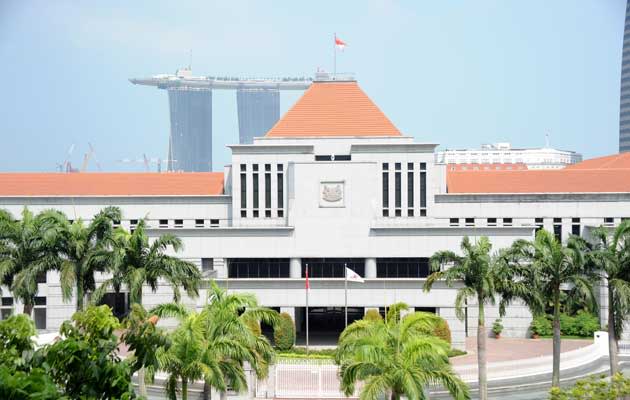What purpose do parliamentary commmittees serve?

By Andrew Loh
On 5 July, the government announced the new line-up of the 10 Government Parliamentary Committees (GPCs). The new appointees will serve a two-year term.
GPCs were an idea mooted in 1987 by then-Deputy Prime Minister Goh Chok Tong, and are supposed to "serve as a feedback mechanism for government policies and programmes."
GPCs were also to "help the PAP Government to 'know even better' because 'it had the full benefit of counsel from MPs outside the Cabinet and their advisors'."
Originally, each GPC had "five to six members". In its latest slate, however, each committee has between 8 to 12 members, including its respective chairman and deputy chairman. Lawrence Wong, chairman of the PAP's publicity and publication sub-committee, said all new PAP backbenchers have been assigned to at least one of the 10 groups.
Questions over roles
But are GPCs just simply a feedback channel for the government? And what are their roles now that there are more opposition MPs in Parliament?
Back in the 80s (and indeed even today), there were cries from the public that parliamentary debates were one-sided and did not reflect the people's sentiments adequately. This was despite the introduction of the Non-constituency Member of Parliament (NCMP) scheme in 1984 which allowed the highest-scoring opposition loser in an election to have a seat in the House.
GPCs thus were created to add that "alternative" voice to parliamentary proceedings. Indeed, Goh "said that the committees would only be credible if they did not appear to collude with the government, the People's Action Party or the civil service." The GPCs were told to look at issues "objectively and independently".
Although the government never did admit it openly, many believed (and still do) that the GPCs were meant to be some sort of de facto parliamentary opposition, providing critiques of government policies. What perhaps many have missed is that the presence of the GPCs may have also been meant to pressure the opposition MPs to do better in their arguments on issues and thus generally raising the standard of debate in the House, which is not a bad thing.
Critics, however, charged that GPCs were a political tool to assuage the public's desire for "genuine" alternative voices which, critics say, only opposition MPs can provide. If PAP MPs, through the GPCs, can do the job, perhaps Singaporeans would see no need for opposition MPs.
This criticism is not without validity, as can be seen in Goh's reaction to his party losing 4 seats, and its vote share dropping by 2.2 per cent, in the 1991 General Election.
At a post-election press conference, Goh, who was leading his party in the hustings for the first time as Prime Minister, "said that GPCs would be removed".
"With the increase in opposition MPs, there was no necessity for government MPs to raise issues from the platforms of GPCs."
"He added that GPCs would be abolished and PAP MPs would close ranks in the new Parliament."
Several weeks later, for reasons unknown, Goh made a u-turn and said GPCs would in fact stay — but PAP MPs would no longer adopt an "adversarial" stance that "would pit PAP backbenchers against their own front bench."
Still considered a political tool
It has been 20 years since Goh's controversial remarks and about-face. Today, GPCs are an accepted part of the parliamentary machine, even though critics will continue to see GPCs as a political tool.
How will the members of the GPC perform in the new Parliament which has the most number of opposition MPs since 1963? Besides helping to fine-tune and pinpoint blind spots in policies, its feedback role is even more critical to the ruling party now. This is especially so given what the current Prime Minister said following the results of the May elections.
Responding to charges that PAP activists had shielded their MPs from negative sentiments on the ground, PM Lee Hsien Loong defended the activists and instead admitted that it is the MPs and his government which may not have deciphered the feedback correctly.
"Unfortunately, we may not have picked up and interpreted it correctly, and acted on it the way we should have done," he said.
The finger could very well be pointed at the previous GPCs, along with other feedback channels, which were in place pre-GE 2011. How did they miss the negative sentiments towards the PAP and the government, and the unhappiness over many policies?
It would thus be interesting to see how the newly-appointed GPCs address this and not only reflect sentiments from the ground accurately but also to highlight flaws in certain policies too.
And if they are able to do so, the role of the opposition — especially those of the Workers' Party, which has 8 MPs in Parliament, and sees itself as a 'watchdog' on the government — will be made that much harder.
After all, the WP's chief, Low Thia Khiang, has pledged that "his party's MPs will scrutinise policies for any loopholes and gaps that are likely to affect the people adversely and will be the voice of the people in the House…"
A role not unlike that of the GPCs, it would seem. The difference is that the GPCs have more resources to do their work than the WP, a point Low admitted in his first parliamentary speech in October.

